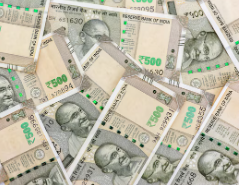7th Pay Commission in India has recently increased the limit of Dearness Allowance from 46% to 50% thereby increasing the limit of Gratuity and other Allowances. As per the rules laid down in 7th Pay Commission guidelines, the gratuity limit and other allowances get automatically revised whenever the DA hits a ceiling of 50%.
Gratuity is a significant acknowledgment of an employee’s long-term commitment and service rendered to an organization. Unlike regular monthly wages, it stands as a separate component within an employee’s Cost to Company (CTC). The regulations governing gratuity are laid out in the Payment of Gratuity Act, 1972, ensuring fair treatment and compensation for employees upon certain conditions.

Eligibility for gratuity arises when an employee reaches retirement age, retires, resigns, or faces unfortunate circumstances like accidents, illness leading to disability, or death. Typically, an employee must have completed a minimum of five years of service to qualify for gratuity, although exceptions exist, particularly in cases of disability or death. However, it’s essential to note that interns or temporary employees usually aren’t entitled to gratuity benefits.
Also Read – UGC Net Exam
Recently, the government’s decision to increase dearness allowance (DA) for its employees by 4% to 50% has triggered a significant revision in various allowances, including retirement gratuity. The gratuity limit, along with other allowances, automatically adjusts whenever the DA reaches a threshold of 50%. Following this adjustment, the maximum limit of retirement gratuity has been enhanced by 25% or Rs 5 lakh, rising from Rs 20 lakh to Rs 25 lakh.
Previously, the retirement gratuity payable for qualifying service of 33 years or more was 16½ times the Basic Pay plus DA, capped at Rs 20 lakh. With the DA reaching 50% in 7th Pay Commission, this limit has been increased to Rs 25 lakh. The Ministry of Labour and Employment, Government of India, has issued a notice specifying that whenever the dearness allowance rises by 50% of the basic pay, the maximum limit of retirement gratuity and death gratuity will be increased by 25%.
The recent revision also impacts various other allowances, including House Rent Allowance (HRA), Child Education Allowance, Special Allowance for Childcare, Hostel Subsidy, Transportation of Personal Effects, Dress Allowance, Mileage Allowance for Own Transport, and Daily Allowance. These allowances have seen a 25% increase following the hike in DA.
The speculation regarding the merging of DA with Basic Pay, given its reaching 50%, has been denied by the government for the time being. This indicates that DA and Basic Pay remain distinct components of an employee’s salary structure.
It’s crucial to understand that gratuity amounts paid to government employees, whether central, state, or local body employees, as well as workers in other government sectors, are exempt from income tax. This tax exemption adds to the attractiveness of gratuity as a benefit for government employees.
In conclusion, gratuity serves as a significant acknowledgment of an employee’s dedication and service to their organization. Recent revisions in allowances, including the increase in retirement gratuity, reflect the government’s commitment to ensuring fair compensation for its employees in line with economic changes. The tax exemption on gratuity further enhances its value as a financial benefit for government employees. While the speculation of merging DA with Basic Pay persists, for now, they remain distinct components within the salary structure. Overall, these developments underscore the government’s efforts to prioritize the welfare and financial security of its workforce.

